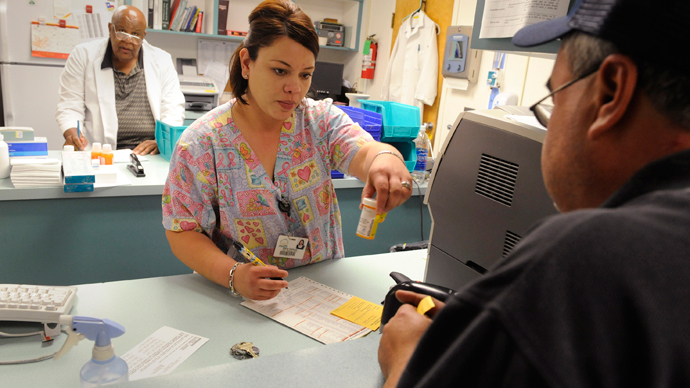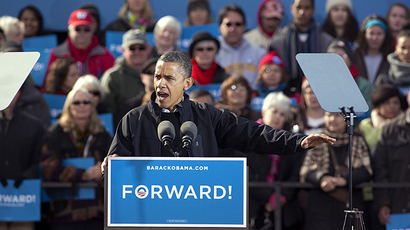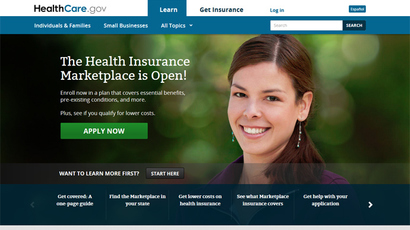70 percent of California doctors plan to boycott Obamacare exchanges

About 70 percent of California’s 104,000 doctors are reportedly planning to stay out of the state’s health insurance exchange, a move that could have significant impact on implementation of the Affordable Care Act.
As states across the country work to enroll Americans in the ACA, one question that remains is exactly what kind of doctor access patients will have when their coverage kicks in. According to the president of the California Medical Association, Dr. Richard Thorp, residents there could find limited options at the start of the new year.
Thorp told the Washington Examiner the primary reason that seven-out-of-10 California doctors are boycotting the Obamacare exchange is due to the state’s low Medicare/Medicaid reimbursement rates, which typically land 30 percent below those in other parts of the country.
For example, Medicare typically pays doctors $76 for return-office visits, but in California doctors only receive $24. A tonsillectomy, meanwhile, pays out between $500 and $700, whereas doctors in California receive $160 for the procedure.
“We need some recognition that we’re doing a service to the community,” Thorp said. “But we can’t do it for free. And we can’t do it at a loss. No other business would do that.”
California’s Medi-Cal reimbursement rates have long been a sticking point for doctors, but when insurance companies revealed their rates would be tied to the state’s Medicaid program, many physicians balked.
To make matters more confusing, multiple medical association leaders told the Examiner that many of the doctors listed as participants in Covered California, the state’s insurance marketplace, have not stated they’d accept patients from the exchange.
“They may be listed as actually participating, but not of their own volition,” said Donald Waters, executive director of the Alameda-Contra Costa Medical Association.
Although numbers have not been revealed at this point, a similar feeling seems commonplace among doctors in New York. In October, a survey of 409 doctors by the New York State Medical Society found that 44 percent of the state’s physicians aren’t participating as ACA providers, while an additional 33 percent were undecided.
As in California, doctors pointed towards low reimbursement rates to defend their lack of involvement.
“This is so poorly designed that a lot of doctors are afraid to participate,” said Dr. Sam Unterricht, president of the 29,000-member medical society, to the New York Post. “There’s a lot of resistance. Doctors don’t know what they’re going to get paid.”
Meanwhile, bipartisan efforts to permanently reform how Medicare doctors are paid have stalled in Congress. According to CNN, Lawmakers from the Senate Finance and the House Ways and Means committees have been working on legislation that would freeze payments through 2023 before implementing a policy that includes raises and bonuses. The law would also change Medicare’s reimbursement method into a system that favors “value over volume.”
The reforms are unlikely to pass Congress this year, however, meaning negotiations will extend into 2014.
How that would affect doctor participation in California and other parts of the United States is unclear, but if doctors continue to hold out, patients could find their choice of physicians shrink, leading to increased waiting times and less access to their doctor.
“Enrollment doesn’t mean access, because there aren’t enough doctors to take the low rates of Medicaid,” Alex Briscoe, health director for Alameda County Health Care Services Agency in California, said to the Examiner. “There aren’t enough primary care physicians, period.”














